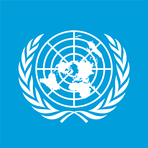Tensions Escalate: The Israel-Hezbollah Conflict Heats Up
October 2, 2024, 9:58 pm

Location: United States, District of Columbia, Washington
Employees: 10001+
Founded date: 2000

Location: Belgium, Brussels-Capital, Brussels
Employees: 1001-5000
Founded date: 1958

Location: United States, New York
Employees: 10001+
Founded date: 2002
Total raised: $500M
The landscape of the Middle East is once again shrouded in turmoil. The recent clashes between Israel and Hezbollah have ignited fears of a broader conflict, drawing in regional powers and threatening to destabilize an already volatile area. The stakes are high, and the consequences could be dire.
On October 1, 2024, Iran launched a missile attack against Israel, unleashing over 180 ballistic missiles. This was not just a show of force; it was a declaration of intent. Israel's Prime Minister vowed retaliation, promising that Iran would "pay for it." The rhetoric was sharp, and the implications were clear: the region is on the brink of a wider war.
In the days following the missile barrage, Israel ramped up its military presence along the Lebanon border. Regular infantry and armored units were deployed, signaling a shift from limited operations to a more extensive ground campaign. This was not merely a response to the missile attack; it was a preemptive strike against Hezbollah, Iran's powerful ally in Lebanon.
Hezbollah reported ground clashes for the first time since Israel's incursion began. The organization, which has long been a thorn in Israel's side, is now facing the full might of the Israeli military. The situation is precarious. Evacuation orders were issued for towns along the southern border, a clear indication that the conflict is escalating.
Despite calls for a ceasefire from the United Nations and the European Union, fighting has continued unabated. The international community watches with bated breath, fearing that the situation could spiral out of control. Iran's Revolutionary Guard Corps warned that any Israeli retaliation would be met with "vast destruction." The stakes are high, and the potential for a regional war looms large.
The backdrop to this conflict is a history steeped in violence and animosity. Israel's military interventions in Lebanon date back decades. Each incursion has left scars, both physical and psychological. The current situation is no different. The ground operations are not just about military strategy; they are about survival, about asserting dominance in a region where power dynamics shift like sand.
Iran's involvement complicates matters further. The Islamic Republic has long supported Hezbollah, providing it with weapons and training. The recent missile attack was framed as retaliation for Israeli actions against Iranian interests in the region. This tit-for-tat cycle of violence is a dangerous game, one that could engulf the entire Middle East.
The U.S. has expressed unwavering support for Israel, pledging to hold Iran accountable for its actions. Washington's backing is crucial for Israel, providing it with a sense of security. However, this support also raises the stakes. Any escalation could draw the U.S. into a direct conflict, a scenario that both sides are keen to avoid but may not be able to prevent.
As the conflict unfolds, the humanitarian toll is mounting. Reports indicate that nearly 1,900 people have been killed in Lebanon since the fighting began, with thousands more wounded. The civilian population bears the brunt of this violence, caught in the crossfire of a geopolitical struggle that seems to have no end in sight.
Airlines have canceled flights to Israel and Lebanon, a sign that the world is taking notice. The fear of escalation is palpable. Countries like China and Saudi Arabia are calling for de-escalation, urging dialogue over conflict. Yet, the rhetoric from both Israel and Iran suggests that neither side is willing to back down.
The situation is further complicated by the internal dynamics within Iran. The assassination of key militant leaders has fueled anger and a desire for revenge. The Iranian leadership is under pressure to respond, to show that it will not be cowed by Israeli aggression. This pressure could lead to further escalation, as Iran seeks to assert its influence in the region.
In Lebanon, the mood is grim. The population is weary of war, yet the specter of conflict looms large. The government is struggling to maintain order as violence erupts on the streets. The fear of a wider war is palpable, with many residents expressing concern that the situation could spiral out of control.
As the world watches, the question remains: how far will this conflict escalate? The potential for a regional war is real, and the consequences could be catastrophic. The Middle East is a tinderbox, and the spark could come from any direction. Diplomacy is needed now more than ever, but the path to peace seems fraught with obstacles.
In conclusion, the Israel-Hezbollah conflict is a complex web of historical grievances, geopolitical maneuvering, and human suffering. The recent escalation is a stark reminder of the fragility of peace in the region. As tensions rise, the world must remain vigilant, hoping for a resolution that seems increasingly elusive. The stakes are high, and the consequences of failure could be dire.
On October 1, 2024, Iran launched a missile attack against Israel, unleashing over 180 ballistic missiles. This was not just a show of force; it was a declaration of intent. Israel's Prime Minister vowed retaliation, promising that Iran would "pay for it." The rhetoric was sharp, and the implications were clear: the region is on the brink of a wider war.
In the days following the missile barrage, Israel ramped up its military presence along the Lebanon border. Regular infantry and armored units were deployed, signaling a shift from limited operations to a more extensive ground campaign. This was not merely a response to the missile attack; it was a preemptive strike against Hezbollah, Iran's powerful ally in Lebanon.
Hezbollah reported ground clashes for the first time since Israel's incursion began. The organization, which has long been a thorn in Israel's side, is now facing the full might of the Israeli military. The situation is precarious. Evacuation orders were issued for towns along the southern border, a clear indication that the conflict is escalating.
Despite calls for a ceasefire from the United Nations and the European Union, fighting has continued unabated. The international community watches with bated breath, fearing that the situation could spiral out of control. Iran's Revolutionary Guard Corps warned that any Israeli retaliation would be met with "vast destruction." The stakes are high, and the potential for a regional war looms large.
The backdrop to this conflict is a history steeped in violence and animosity. Israel's military interventions in Lebanon date back decades. Each incursion has left scars, both physical and psychological. The current situation is no different. The ground operations are not just about military strategy; they are about survival, about asserting dominance in a region where power dynamics shift like sand.
Iran's involvement complicates matters further. The Islamic Republic has long supported Hezbollah, providing it with weapons and training. The recent missile attack was framed as retaliation for Israeli actions against Iranian interests in the region. This tit-for-tat cycle of violence is a dangerous game, one that could engulf the entire Middle East.
The U.S. has expressed unwavering support for Israel, pledging to hold Iran accountable for its actions. Washington's backing is crucial for Israel, providing it with a sense of security. However, this support also raises the stakes. Any escalation could draw the U.S. into a direct conflict, a scenario that both sides are keen to avoid but may not be able to prevent.
As the conflict unfolds, the humanitarian toll is mounting. Reports indicate that nearly 1,900 people have been killed in Lebanon since the fighting began, with thousands more wounded. The civilian population bears the brunt of this violence, caught in the crossfire of a geopolitical struggle that seems to have no end in sight.
Airlines have canceled flights to Israel and Lebanon, a sign that the world is taking notice. The fear of escalation is palpable. Countries like China and Saudi Arabia are calling for de-escalation, urging dialogue over conflict. Yet, the rhetoric from both Israel and Iran suggests that neither side is willing to back down.
The situation is further complicated by the internal dynamics within Iran. The assassination of key militant leaders has fueled anger and a desire for revenge. The Iranian leadership is under pressure to respond, to show that it will not be cowed by Israeli aggression. This pressure could lead to further escalation, as Iran seeks to assert its influence in the region.
In Lebanon, the mood is grim. The population is weary of war, yet the specter of conflict looms large. The government is struggling to maintain order as violence erupts on the streets. The fear of a wider war is palpable, with many residents expressing concern that the situation could spiral out of control.
As the world watches, the question remains: how far will this conflict escalate? The potential for a regional war is real, and the consequences could be catastrophic. The Middle East is a tinderbox, and the spark could come from any direction. Diplomacy is needed now more than ever, but the path to peace seems fraught with obstacles.
In conclusion, the Israel-Hezbollah conflict is a complex web of historical grievances, geopolitical maneuvering, and human suffering. The recent escalation is a stark reminder of the fragility of peace in the region. As tensions rise, the world must remain vigilant, hoping for a resolution that seems increasingly elusive. The stakes are high, and the consequences of failure could be dire.